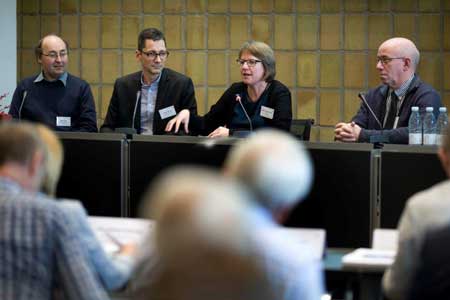We need to think innovatively and collaborate across sectors if global energy, water and food production is to keep up with increasing demand. These are the recommendations in
DTU International Energy Report 2016.
Global access to energy, water, and food is under threat and the two main culprits are climate change and increased population growth. The world population is expected to increase by 33 per cent from the current 7.4 billion to around 9.7 billion in 2050.
There are close links between the production of energy, water, and food: Water is involved in the production of both energy (e.g. cooling in power stations) and food (e.g. irrigation of crops). In addition to water, food production also requires energy. Conversely, crops can be involved in energy production (e.g. biomass).
No more silo mentality
The sectors must therefore be seen in the context of the so-called energy-water-food nexus. Nevertheless, political and administrative decisions are made separately within each sector. The message at the Energy-Water-Food Nexus 2016 conference at DTU on 6 December, where DTU International Energy Report 2016 was also presented, was that this needs to change, as new solutions must be found across the three sectors.
“Solutions that take into consideration the correlation between the three sectors ensure more sustainable management of resources and can also ensure that everyone has access to them,” said DTU’s Dean of Research, Katrine Krogh-Andersen, when she presented the report to more than 100 researchers and stakeholders from the energy, water and food sectors in Denmark.

Panel discussion at the conference. From left to right: Senior Researcher/Associate Professor Martin Drews, DTU Management Engineering, Professor Thomas Astrup from DTU Environment, Katrine Krogh-Andersen, Dean of Research at DTU, and John M. Christensen, Director of UNEP DTU Partnership. Photo: Torben Nielsen.
Denmark should establish research centre
The Dean drew attention to the report’s proposal for ensuring collaboration, which is that Denmark should establish an international Energy-Water-Food Nexus R&D centre to bring the sectors together and connect key players from both the private and public spheres.
Research and development can lead to new production technologies, new methods, and a greater knowledge base for public agencies when they need to make decisions about the management of resources.